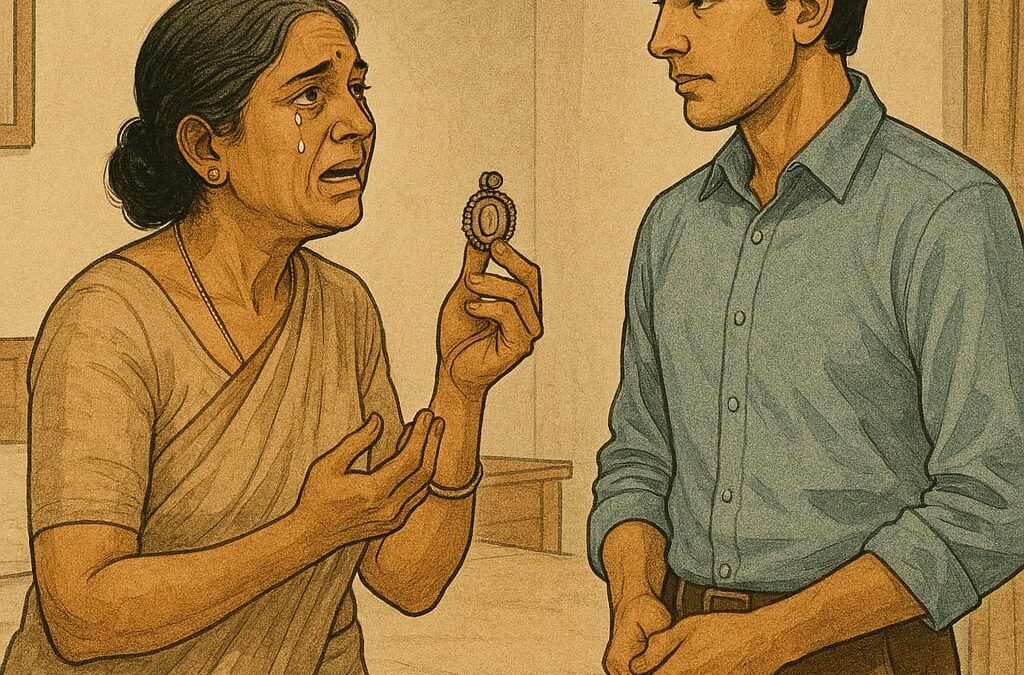As I stepped off the train at Karmelaram railway station, Bengaluru greeted me with a gentle rain. “It’s the closest you can get to Electronics City,” my friend, who was already settled in the city, informed me.
Unfortunately, he wasn’t able to pick me up since he lived in Domlur, quite a distance from my destination. Given Bengaluru’s notorious traffic, it was unrealistic to expect anyone to drive over just for a greeting.
The autorickshaw driver I hired to take me to Electronics City was quite the chatterbox. Despite my lack of understanding of Kannada, he continued his animated conversation, his expressive tone conveying a range of emotions, though the meaning escaped me.
He persistently asked for extra fare on top of the hefty charge for the bouncy ride. In the end, I tipped him and sighed with relief upon arriving at the flat I had booked online thanks to my friend’s assistance. Although my friend had offered me a spot at his place, I preferred solitude as it was shared with two other boys, and I knew I wouldn’t feel at ease there.
So, here I was, alone in my one-bedroom apartment, facing three large suitcases. My mother, unable to resist packing some kitchen essentials and groceries, had filled them with her customary provisions. She had strong beliefs about outside food, often wrapped up in anxiety. “Prepare your meals; it’s healthier and will save you money. Eating out too much can lead to stomach troubles,” she would insist.
Although she knew my reluctance towards cooking, she still packed these items, perhaps hoping I’d change my ways. My mother had made sincere attempts to teach me basic dishes like dal and curry when I learned I would be moving to Bengaluru. Cooking never became a necessary skill. My mother firmly believed that boys should learn to cook and had a collection of anecdotes highlighting the calamities that ensue when they don’t. One of her most notorious tales involved a woman unable to travel alone if her male partner lacked culinary skills. Her wariness of takeout was always a favourite subject.
At that moment, my thoughts turned to coffee. Thankfully, Mom had packed the coffee powder along with the traditional filter. Although I could have enjoyed black coffee, the apartment needed some serious tidying up.
Fortunately, my friend had made cleaning materials available, responding to my requests. Just as I lazily picked up the broom, the doorbell rang. Expecting a kind neighbour checking in, I opened the door to reveal a plump, middle-aged woman. She looked neat with her styled hair, maintaining an aura of grace despite her worn saree and blouse.
With her hands clasped together, she launched into what seemed like a well-rehearsed introduction in Tamil. Hearing my native language made me cheerful. Her name was Lalitha.
She explained that she worked as a maid in some homes within the society and was seeking more opportunities. Lalitha mentioned that she also cooked for a few families and readily provided references from the neighbours to establish her credibility. She seemed genuine, and feeling fatigued, I didn’t hesitate to hire her.
I could always discuss it with Mom later; I imagined she would be disappointed to discover how slack I had been.
Lalitha said she would arrive by noon to clean the dishes I had left in the sink after dinner, prepare lunch and a snack, clean the apartment, and then head off.
Life as a bachelor is quite chaotic. To add to the chaos, I worked evening shifts from 6 pm to 3 am. Even when I returned home at 3:30 am, sleep often eluded me until the early hours. I spent my nights binge-watching television and killing time until I felt hungry again. Sometimes I snacked on leftovers from Lalitha’s cooking or resorted to having fruits.
My door did not have a latch system, so one needed to bolt it from the inside or use a lock to secure it from the outside.
When I was fast asleep, I had to wake up at noon to let Lalitha in since the door would be bolted from inside. She would rouse me again around 2 p.m. to secure the door after finishing her tasks. The interruptions to my slumber became so frequent that I decided to install a lock on my door and gave Lalitha a spare key.
After that, life became much simpler. For days on end, I hardly saw her. I would buy the necessary groceries myself and request that she pick up vegetables at her convenience, for which I compensated her with a designated amount each month alongside her salary. I told her to find her monthly paycheck on the kitchen counter on the last day of each month. We hardly exchanged any words until I decided to buy a motorbike.
Just two days after my purchase, she gently called, “Thambi,” as she often did. “I saw you on your bike going to the office yesterday evening. It looks lovely, but please be careful—Bengaluru traffic is quite heavy.”
To say I was irritated wouldn’t capture the depth of my annoyance. I was on the verge of yelling at her for waking me, but I managed to restrain myself, simply nodding instead.
“Ride safely,” she reiterated before leaving.
This became a bit of a routine; every day, before she took off, she would wake me to deliver the same reminder.
I tried to ignore her for a bit, but she didn’t seem to notice my coldness. I made several feeble attempts to gently reprimand Lalitha, but they didn’t faze her. She continued her daily interruptions until one day, I finally snapped and warned her that I would terminate her services if she kept this up.
After that, a week went by without any communication between us.
One evening, while riding my bike home, I realized I had left my identity card behind. When I approached my front door and turned the key, I was taken aback to find it unlocked. Perhaps I just forgot to secure it, I thought scoldingly to myself. But as I opened the door, I was horrified to see Lalitha emerging from my room. She had no business being there at such an hour.
Upon noticing me, her face drained of colour, and she grew visibly anxious, mumbling incoherently.
“What are you doing here at this time?” I shot back, unable to contain my fury. The sight of her shimmering eyes filled with unshed tears only fuelled my anger further. “Don’t try to manipulate me with those crocodile tears,” I yelled. “Tell me why you’re here and what you were doing in my room, or I’ll have no choice but to call the police.” I pointed a finger at her in accusation. She cried out and motioned for me to step into my room with her.
“Thambi,” she said, lifting the mattress to reveal a small pouch. When she opened it, a talisman tumbled out along with a few other items—a small coin, a turmeric stick tied with thread, and more. “I placed everything else here two days ago but just retrieved this special talisman today. These were given to me by the temple priest for your protection.”
Despite her articulate Tamil—a language I typically understand—I stood there bewildered, struggling to process it all.
She wiped her tear-streaked face and continued, “Thambi, I had a son who would be married and settled by now, had he lived. He wanted a bike just like you at your age. With financial struggles, I managed to get him a second-hand bike. No matter how often I pleaded, he continued to ride recklessly. One day, he lost control and was struck by a truck.”
I murmured an apology, unsure how to comfort a sobbing Lalitha.
“I know young men today may mock beliefs in rituals and talismans, but there is power in prayer. You might not have accepted this if I had handed it to you directly. Following the priest’s advice, I placed these items under your mattress. He said if you don’t want to tie the talisman, you can keep it nearby for its protective energy. I couldn’t help but notice you zooming by on your bike at such a reckless speed every single day. I’ve urged you countless times to take it easy, but I know that at your age, such advice might come across as bothersome. Trusting that this talisman, along with other supportive items, will keep you safe, I tucked it underneath your mattress.”
Just as Lalitha was about to head out, I called her back. “Can you tie this on my wrist?” I asked, handing her the black talisman.
She lit up with a smile as she fastened it for me.
Despite what she believed, my modern sensibilities struggled to embrace the idea that this talisman could shield me from a biking mishap. Yet, deep down, I knew that a mother’s love and heartfelt prayers could truly create a protective embrace around me.
This story was published in ALS 2024 magazine

